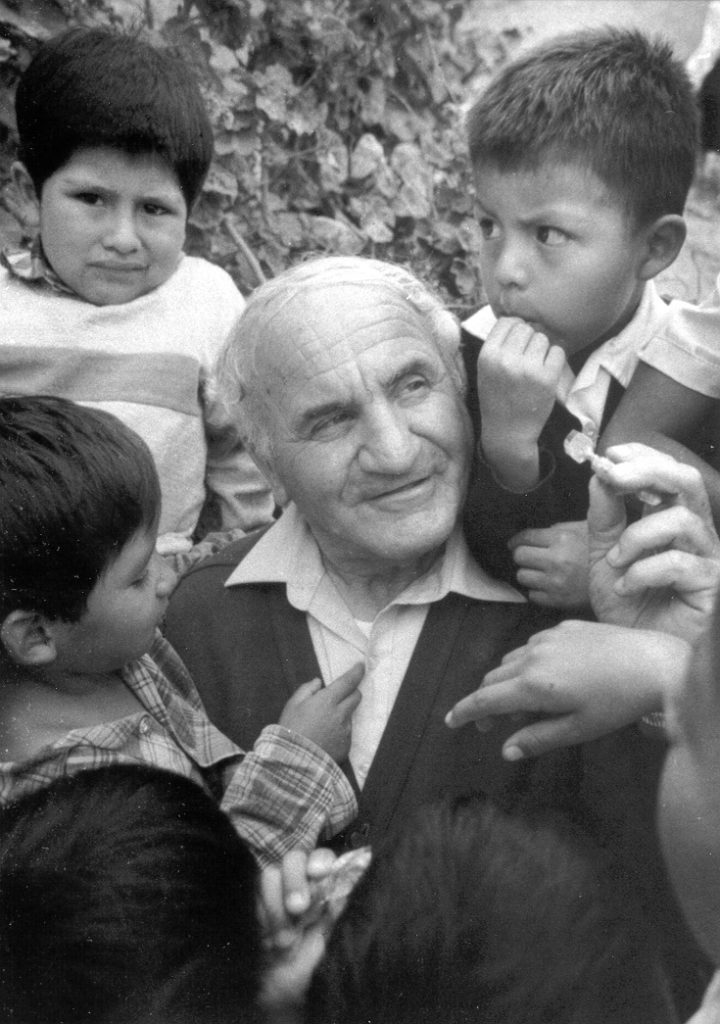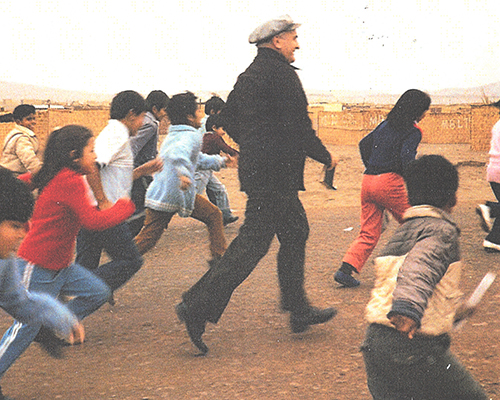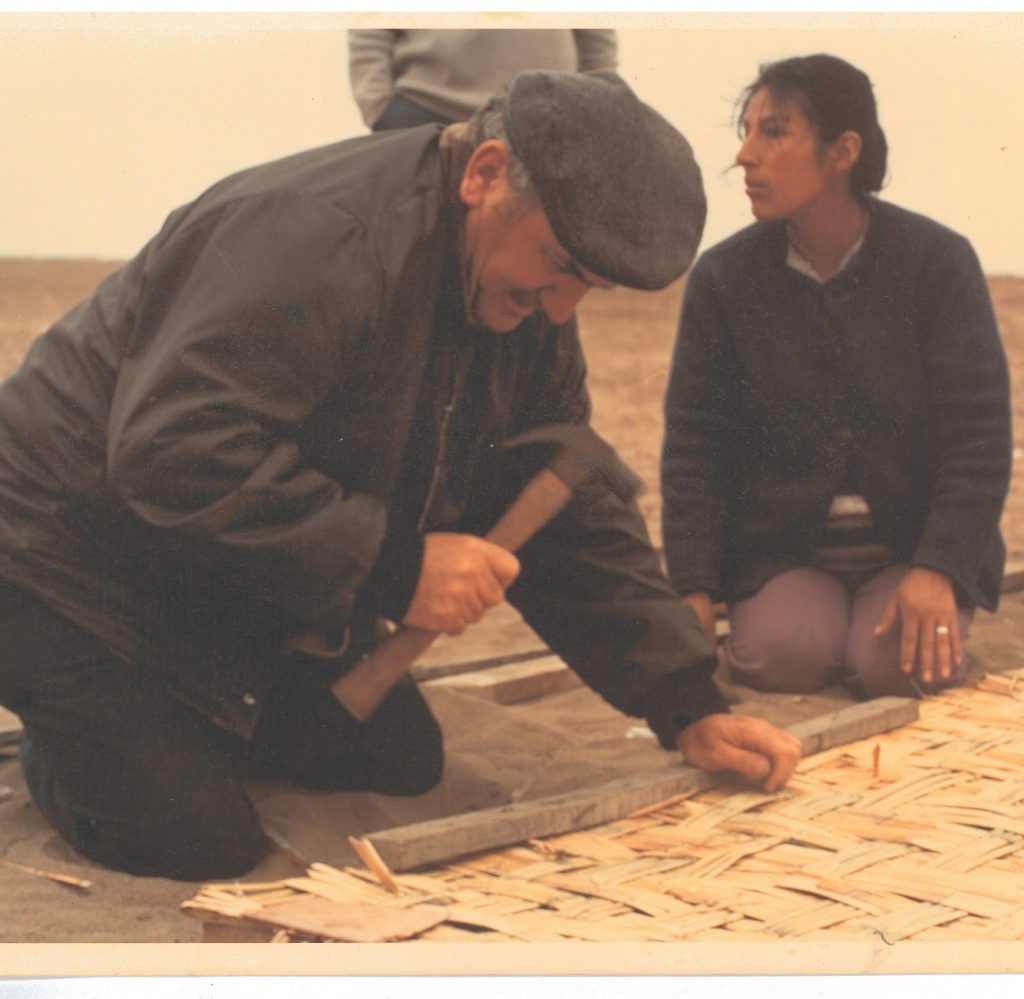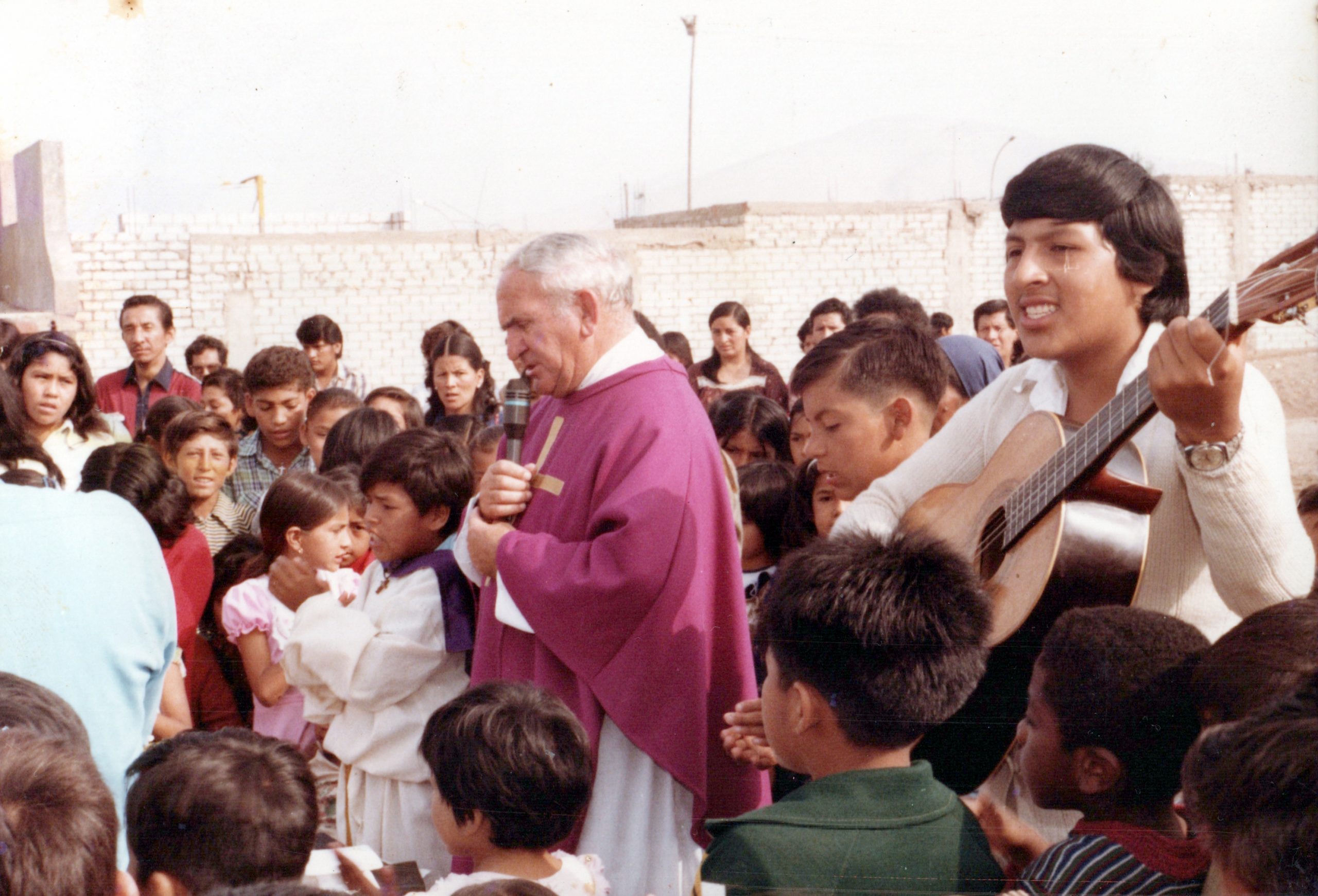The enduring missionary heart of Father Joseph Walijewski
What is a missionary?
To many, the word may conjure images of distant lands, foreign tongues and sacrificial service. But for countless people in the dusty streets of Peru—and for tens of thousands across the Diocese of La Crosse—a missionary will always look like Father Joseph Walijewski: a man whose very life was a prayer of action, a humble servant whose heart was formed by gratitude and strengthened by grace.
A missionary’s vocation is not defined by location, title or task but by love poured out. Grace allows a missionary to see the face of Christ in every person, especially the poor. Gratitude compels a missionary to respond not from obligation but from the joy of being loved by God. Father Walijewski lived this truth with every fiber of his being.
Accomplishing… with Grace
In 1971, the BBC released “Anno Domini,” a documentary that introduced the world to a priest serving in the slums of Villa El Salvador, Peru. The people he served—more than 200,000 at the time—had been displaced by an earthquake and forced to settle in the barren desert. They had nothing. And neither did Father Joe when he arrived.
“I only have two hands and two feet. What can I really do?” he told the interviewer. “There’s an old saying: ‘Do your best, and God will do the rest.'” That was the grace in him speaking. And with gratitude, he embraced his missionary identity—not limited to his clerical role but expanded by the needs of the people.

“I have to be everything here: a carpenter, a chauffeur, an ambulance driver, a friend and a priest. Even if I don’t know the answer, I try. If a house is on fire and you’re not a fireman, you still do what you can to put it out.” And so he did. Every day.
With grace, he saw. With gratitude, he acted. With a missionary heart, he stayed. He built the Parish of Cristo Salvador—not just a church but a community—at a time when there were no walls, no roof, nothing but faith, sand and a people desperate for hope. Even before there were pews or sacraments, there was mission: the belief that where two or more gather in Christ’s name, He is present.
“If I weren’t a priest, I’d still be doing this type of work,” Father Joe once said. “Because I know what it means to be without food, without support. I’ve lived that. So when I see children here suffering, I feel part of them.” That kinship is at the core of missionary life—walking not ahead of the poor, but among them.
He lived as they lived.He slept on a dirt floor, his mattress propped up on four cement blocks. One Peruvian woman remembers meeting him as a girl. “There was nothing that made him more important than the people he was helping. He was simply there, living in the same conditions, standing in the same dirt. And now, I pray to him.” She met a missionary—not by title, but by witness.
Receiving and Giving
He helped build homes, not just with bricks but with dignity. He invented a machine to help families make cement blocks, training them so they could transform plywood shelters into permanent structures. Grace gave him eyes to see potential; gratitude gave him the energy to teach.
He opened soup kitchens to combat malnutrition and then started Project Milk to provide Peruvian children with vital nutrients before school. This, too, was a missionary act: nurturing not only souls but bodies, just as Christ did.

And when a pregnant mother labored for days in a hut with no help, it was Father Joe who came. He lowered his shoulder so she could lean on Him. He guided her to his car. He drove her to safety. Because missionaries don’t wait for someone else to answer the call—they are the answer. And yet, he always said, “I feel like I’m getting more from the people than I can give.”
That is the paradox of mission: It is exhausting and enriching. It strips you of comfort and fills you with peace. Grace enables that mystery. Gratitude sustains it. One day while walking through the streets of Lima, Father Joe spotted what appeared to be a bundle of old newspapers. As he passed, a small hand reached out. It was a young girl, sleeping on the cold ground. He gave her his sandwich. She took it and gave it to her little brother. When he asked why, she replied: “It’s not my day to eat.”
That haunting moment marked him forever. It was grace that let him feel the full weight of her suffering. And it was gratitude that gave rise to Casa Hogar Juan Pablo II, the orphanage that continues to shelter, educate and love high-risk children to this day. One graduate remembers:”He was my guide. He taught me about family, about values. He was living the mission that God placed in his heart. Even now, from heaven, he continues to care for us.”

This is the legacy of a missionary. Not fame. Not monuments. But people who believe in God because they once felt His love through a man who walked beside them. From the sand dunes of Villa El Salvador to the safe walls of Casa Hogar, Father Walijewski’s missionary heart endures. Not because he sought to be a hero, but because he dared to love—fully, humbly and without measure. He offered his best and grace did the rest.
In the words of the prophet Isaiah, he lived each day saying, “Here I am. Send me.” (Is 6:8) And God did. He sent him from the fields of Wisconsin to the jungle of Bolivia and then to the deserts of Peru. And through grace and gratitude, Father Joseph Walijewski changed lives.
His mission continues. Through every meal served, every child embraced and every soul uplifted. Through you. Through me. Through all who believe that holiness is possible in ordinary life, when lived with extraordinary love.
Servant of God, Father Joseph Walijewski, pray for us.
By Noel Furger
Published in the Fall 2025 edition of Catholic Life Magazine

